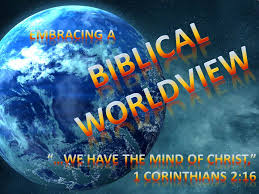6. Christian World View as an Apologetics Framework (i)
We have previously seen that "world view" is another way to describe the lenses or frameworks through which we see and interpret the world. World view can be seen as:
an apologetics framework
a compass
a roadmap
an anchor for approaching, defining and explaining issues
a way to position ourselves (thinking, opinions, values, judgements, priorities) in relation to the rest of the world
Twelve "Mountains of Culture"
Some people in evangelical circles speak of "Seven Mountains", "Seven Mountain Mandate", or "Seven Mountain Prophecy". These concepts relate to seven "mountains", or "spheres", of influence (business, government, media, arts & entertainment, education, the family and religion), in which the church is called to build and exert influence.
The idea goes back to a meeting between Bill Bright (founder, Campus Crusade) and Loren Cunningham (founder, Youth with a Mission) in 1975. Both men believed that they had been given a dream by God, containing a message to give to the other. That message was about Seven Mountains of influence. Bright, Cunningham and Christian philosopher Francis Schaeffer believed that in order for the church to impact the world for Christ, it is necessary to influence the Seven Mountains of society, even to "reclaim" them. What does this mean in practice?

There are, in fact, more than seven spheres. We will consider twelve:
- Theology, Sociology & Philosophy
- Law
- Ethics
- Media (print, radio/television, entertainment, social media)
- Politics & government, power, public policy, international relations
- Education
- Marriage and family
- Science
- Environment
- Economics
- Art & literature
- History - interpretation
"Mountains" can be seen as a "type". The enemies of the people of Israel in the Old Testament often dominated mountains, giving them strategic advantages in times of armed conflict. Likewise, their gods were sometimes said to be located in the "high places" (eg 2 Chronicles 28:4). The prophet Elijah stood on the top of Mount Carmel to challenge the power and teachings of Baal and other pagan deities (1 Kings 18:16-45).
The twelve "mountains" identified above are a convenient way to describe sectors, or manifestations, of our culture, that help shape world views.
In and of themselves they are not inherently "good" or "bad", but they can become influencers that shape our thinking and how we respond to the stimuli coming from the world around us. Depending on who controls of the levers, they can be used for good purposes, or bad ones. They can be used to attack Christianity and undermine Christian values.
Importantly, they can be difficult to recognize, sometimes (like an iceberg) we see only what is obvious above the surface, not what lies beneath.
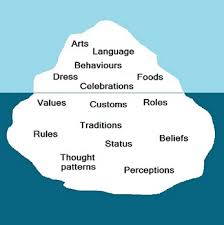
What do secular views about these "mountains" have in common?
- they are familiar, widely accepted and taken at face value
- where did this idea or assumption come from? is it verifiable, is it "true"?
- the extreme ends have strong and convincing proponents
- they can be used to co-opt cultural groups, to lend legitimacy and re-fit the claims people make or infer
- they seem authoritative, and gain real authority
- they have intellectual appeal
- they appeal to emotions
- they offer a sense of community, belonging, identifying
- they impose standards, thought streams, cultural "norms"
- those who do not support them are often isolated and labelled
- they offer rewards for those who embrace them and comply
- they are (or become) normative
- they are agenda-driven, though the agendas are not often not visible; visibility would expose them, so best to obfuscate or re-focus the views back on detractors
- they can be used to wield political, social, cultural and economic power
In the broad context of "world view", it is important for Christians, not only seek to build influence in each of these areas, but also to grasp the way our world views can be influenced by them. Most Christians adopt and verbalize non-Christian world views in these areas without realizing it or discerning what is going on.
"Therefore consider carefully how you listen" (Luke 8:18).
We live in a vast supermarket of ideas, beliefs, conflicting views, opinions, expertise, mind control and faulty logic. We need to assess and challenge what we hear, read and would otherwise accept at face value. Secular world views are not eternal. They do not necessarily reflect truth. Test them - otherwise we will end up uncritically parroting the values of "the tribe" that inhabits "our" world.
Before the flood God saw that "every inclination of the thoughts of the human heart was only evil all the time" (Genesis 6:5).
Paul wrote about ungodly men who "although they knew God, they neither glorified him as God nor gave thanks to him, but their thinking became futile and their foolish hearts were darkened." (Roman 1:21). Christians believe that this is the default position of a non-Christian world, and that it impacts every level of society. Before we can think Christianly we need a paradigm shift.
Paul also wrote that "For though we live in the world, we do not wage war as the world does. The weapons we fight with are not the weapons of the world. On the contrary, they have divine power to demolish strongholds. We demolish arguments and every pretension that sets itself up against the knowledge of God, and we take captive every thought to make it obedient to Christ." (2 Corinthians 10:3-5).
Many Christians believe that spiritual warfare needs to take place in each of these "strongholds" of cultural influence that can enslave people.
Theology, Sociology & Philosophy
Theology, Sociology & Philosophy are where value propositions sit.
The sphere of theology depicts how we understand God, the origins and purpose of life, the nature of the world as created by God, the love of God, family, social organization and other social structures, and the future. If we remove God from the equation we are left with pluralistic, humanistic or naturalistic interpretations.
Sociologists acknowledge the existence of institutions such as family, church, economy and state. They differ in their description of the origin, authority, and purpose of these institutions and how each relates to the individual. The Christian worldview teaches that God created men and women in His image; atheistic worldviews that reflect a Darwinian perspective teach that men and women are evolving animals and consider God, Adam and Eve, the Garden of Eden, and the sanctity of the family to be pre-scientific myths.
Philosophia means "love of wisdom". It ultimately involves seeking wisdom, scholarship and the meaning of life without recourse to religion. Wisdom is good, but not if it replaces God; true wisdom leads us to God (Proverbs 9:10; check out Ecclesiastes 2:14). Let's look at one area that where a non-Christian philosophy seeks to change Christian truth: liberal theology.
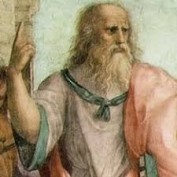
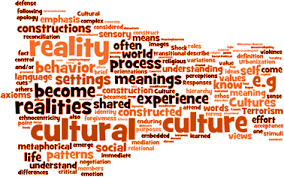
Liberal Theology
Liberalism (also known as higher criticism, modernism, neo-orthodoxy, Bultmannism, new hermeneutic) is a theological movement rooted in the early 19th century German Enlightenment, notably in the philosophy of Immanuel Kant and the religious views of Friedrich Schleiermacher. It is an attempt to incorporate modern thinking and developments, especially in the sciences, into the Christian faith. Liberalism emphasizes ethics over doctrine and experience over Scriptural authority. While essentially a 19th century movement, theological liberalism came to dominate mainline churches in the early 20th century and variations exist today.
Protestant liberal thought in its most common forms emphasized the universal Fatherhood of God, the brotherhood of man, the infinite value of the human soul, the example of Jesus, and the establishment of the moral-ethical Kingdom of God on Earth.
Liberalism gave rise to other movements with varying emphases. Among these movements have been the so-called Social Gospel, theological Feminism and Liberation theology. One product of these movements is the Myth of Christian Origins which denies the divinity of Christ and the authority of the Bible. Many modern ministers and churches have been influenced by liberal claims that evangelicalism is lacking in scholarship, unable to provide answers to secular humanism, and therefore inherently inferior and not to be taken seriously.
Some differences between evangelical and liberal theologies
| Evangelicals believe that... | Liberals believe that... |
|---|
| There are absolutes, established by God; many things in the world are stable and fixed (Malachi 3:6a; Hebrews 13:8)
| Theology must not go beyond tentative assumptions; there are no absolutes.
|
| Conclusions can be reached in the field of theology that can be regarded as certain and final (John 14:6)
| It is unsafe to develop fixed views about God and theological views. Who/what is God? Who/what is truth?
|
| The Bible was written by men under the inspiration of the Holy Spirit; it is the Word of God (2 Peter 1:20-21).
| The Bible "contains" (or may not) the Word of God or words about God; it is just a book, written by men, full of errors, subject to investigation. The Old Testament is about Jews, for Jews.
US-born Bishop Barnes (born 1945): "The Old Testament is Jewish literature. In it are to be found folklore, defective history, half savage morality, obsolete forms of worship based on primitive and erroneous ideals of the nature of God and crude science". The Bible is unreliable; the Gospels are inaccurate, inconsistent.
|
| Faith is the basic norm for the Christian life (Hebrews 11:6).
| Any modern man or women who honestly faces all the recent scientific discoveries can no longer accept the supernatural elements of Christianity. "Faith" does not need any historical or objective support because it is existential".
|
| Modern man must adjust to the Bible.
| The Bible must adjust to modern man. The Bible is a human document, written to inspire religious experiences. We are free to interpret it as we wish and decide what we want to keep/exclude.
|
| The answer to our problems is for man to be reconciled to God through Jesus Christ.
| The answer to our problem is man's reconciliation with man.
|
| All men are sinners.
| Beliefs in doctrines such as original sin offend modern sensibilities.
|
| Jesus Christ was both human and divine, the Son of God.
| Jesus' divinity was invented by religious writers. The so-called miracles of the Bible should be seen as statements of belief, not literally; it has out-of-date stories, concepts and values.
|
| The death of Christ paid for the sins of the world.
| Notions of sin and sacrifice are Greek/Jewish ideas that must be reinterpreted for modern times. We need to avoid "butcher shop religion".
|
Results of liberalism are: confusion about the meaning and scope of belief; selectivity (people take what they want and reject the rest); declining church attendance; naturalism; growth of cults; moral void and relativism ("no one can tell me what to believe in or how to live"); religion that has form but no power; irrelevancy (why bother with Christianity?) and the death of hope.
Liberal theology continues to challenge Biblical theology in our day.
Law
The Christian world view recognizes the state (in its various forms) as a God-ordained institution (Genesis 9:6, Romans 13:1-7, 1 Peter 2:13-17). Christianity believes in sin and the individual's responsibility. Christians talk about justice because they believe in a lawgiver judge; people who do not believe in God can only cite social averages or norms, not justice (strictly speaking).
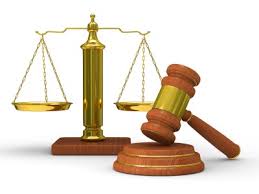
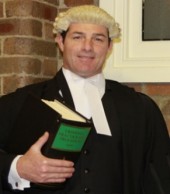
According to the Bible, the law consists of both natural and divine laws originating in the character of a righteous and loving God. Natural laws are evident all around us, eg gravity. Divine law is eternal because God is eternal (cf Acts 17:31). Christians believe in a judgment based on natural and revealed law (Romans 1 and 2).
God established human government and the rule of law primarily to keep in check man's sinful nature and its outworking (Romans 13:1-7).
Because of the Fall, human history reflects a continuing effort by people without God to substitute man-made law for God's law.
Christians believe that we are to obey the law - paying taxes, obeying rules and laws, and showing respect. If we do not, we are ultimately showing disrespect towards God, for He is the One who placed that government over us. When the apostle Paul wrote to the Romans, he was under the government of Rome during the reign of Nero, perhaps the most evil of all the Roman emperors. Paul still recognized the Roman government's rule over him.
The Christian concept of human rights (most of the earliest battlers for human rights were motivated by Christian belief) involves the biblical doctrine of man's creation in the image of God. Christians value human life. These rights carry with them specific responsibilities.
Christians also know that the law can be manipulated, and changed so as to justify injustice.
Then Jesus said to the crowds and to his disciples: "The teachers of the law and the Pharisees sit in Moses' seat. So you must be careful to do everything they tell you. But do not do what they do, for they do not practice what they preach." (Matthew 23:1-3)
Christians should get involved in the legal profession, and actively seek to shape strategic thinking in this important cultural sphere. We need lawyers and High Court judges who are Christians, who are fearless, impartial, hold leaders to account, fight for human rights, law reform and justice, and do not "roll over" for the sake of peace and compromise; believers who know that "righteousness exalts a nation: (Proverbs 14:34). We can be more effective as salt and light inside the "system" than standing on the outside complaining or finding fault, or feeling like victims.
In approaching the law (as with the other areas of culture), Christians need to live intentionally and pray for wisdom to understand what is really going on.
Discussion: Where do man-made laws and God's law start and finish? Should Christians support theocracies? What should Christians do when man-made law violates what we believe to be God's law? How can Christians lead non-Christian organisations in a Christian-like way.
Ethics
According to the Bible, God's moral nature is absolute and unchanging. Theologians teach that He is "immutable". God hates evil and loves good. The Bible tells us the difference between good and evil, and provides a framework on which ethics must be built.
According to the Christian worldview, God makes standards and rules by which people are to live; secular ethics is based on the contrary belief that men and women alone make the rules.
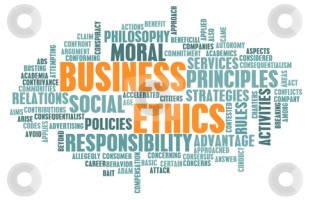

Ethical relativism holds that morality is relative to the norms of one's culture. That is, whether an action is right or wrong depends entirely on the moral norms of the society in which it is practiced. The same action may be morally right in one society but wrong in another, depending on the prevailing view of a particular individual, culture, or historical period. Ethical relativism lacks any anchors (Matthew 7:13).
Christian ethics are inseparable from Christian theology because they are grounded in the same character of God. Rather than believing in an ethical framework determined by society (which society? who decides? who is the arbiter? cf Judges 17:6, Proverbs 12:15, 16:2) the Christian worldview has a specific moral order revealed to man through both general revelation and special revelation of the Bible and the person of Jesus Christ.
Christianity teaches a given, known, absolute standard against which all laws and behaviour are to be measured. We are always called to honour God with our actions and speech. We are called to be kind to each other. We are called to respect civil authority.
Christian ethics is ultimately based on the two greatest commandments:
- "'Love the Lord your God with all your heart and with all your soul and with all your mind"
- "Love your neighbour as yourself.
(Matthew 22:37-40).
Ethical relativism teaches that there is no universal standard of morality. There is no act that is always right or wrong for all people at all times. Instead of a definable standard, morality is based on the prevailing culture, the will of the people, understanding of science, or personal opinion, preference or convenience.
Discussion: to what extent can Christians impose their ethical standards on society? How can a Christian world view about ethics be imparted, eg in the family?
Media (print, radio/television, entertainment, social media)
In May 1789, King Louis XVI of France summoned to Versailles a full meeting of the 'Estates General'. The First Estate consisted of three hundred clergy. The Second Estate, three hundred nobles. The Third Estate, six hundred commoners. A "fourth estate" was already emerging - the media, almost as powerful as the other three.
Questions to reflect on:
-
What's going on in the media? Who controls it? What are they trying to impose on our thinking? How should we interpret the editorial opinions, news, advertising?
News is to the mind what sugar is to the body. It is easy to digest. The media feed us bite-size chunks of trivia that don't really concern our lives and don't require thinking. That's why we experience almost no saturation. Unlike reading books and long magazine articles (which require thinking), we can swallow seemingly limitless quantities of news flashes. We are slowly beginning to recognise how toxic news and sensational advertising can be. We seldom stop and think about the way the media (especially television) waste our time, clutter our thinking with junk, mislead us, inhibit our creativity, dull our radars and increase our anxiety levels.
The term "the media" originated in advertising over 70 years ago, but has come to refer to all forms of mass communication. The word is actually the plural form of the word medium, which Webster's defines as, "a means of affecting or communicating something." All communications: movies, television, radio, advertising, literature, and music are forms of media, and they certainly do affect us.
Human beings are sensory creatures. Our view of the world is shaped and affected by what we perceive through the senses, most importantly, what we see and hear. Information taken in through the senses is stored in the brain for later retrieval. This is true whether an individual can understand the information or not. Therefore, even if a child cannot understand what he or she is seeing or hearing, the information is stored, and can be accessed later. These stored, compiled, and processed images and sounds impact our personalities and are the essence of who we are. But they often lack one important component: a context, a clear worldview.

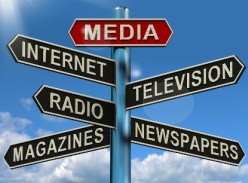

There is a direct correlation between money, the media, and society. Money buys influence. The media exert influence. And the media influences us. So, whoever has the money can influence us. And influencing us is what it's all about. The values those with money and control promulgate are the values that they influence us with. Information flowing through the media is instantaneous and pervasive. Much reporting is syndicated. All is biased one way or another. Movies are filled with agendas, messaging and attempts at social engineering, much of it subliminal.
There are few Bible-believing Christian media moguls in the world.
From what we see in the media there can be no question that those values are usually not Christian. Western media (especially tabloid journalism) frequently treat Christianity with hostility and open contempt while giving oxygen and "free kicks" to alternative views. We should not be surprised (cf 1 John 4:19).
As Christians we cannot control the media, but we can control our worldview. We can decide that there are moral absolutes. In light of this we should seek to look "under the bonnet" and see what sort of engine is driving the media vehicle that seeks to co-opt us.
We can, and should, determine how we are going to process what we see and hear on television, radio, Facebook, Twitter. Just because something appears on the Internet, CNN, Al Jazeera, Wikipedia or YouTube does not mean it is true. Or that the interpretation placed on it is accurate, or complete. We need to develop discernment, so as not to emerge with a Murdoch or Al Jazeera view of the world.
There is an urgent need for Christians working in journalism and other media outlets.
Questions to ask:
- how did Jesus respond to the big issues of His day:
- corruption by the priesthood
- poverty
- lack of faith among the religious masses
- sickness
- demonic possession/oppressions
- marriage and family issues
- injustice
- social needs
- abuse of spiritual and secular power and authority
- cultural differences
- stress
- work ethics
- accidents and death (consider Luke 13:1-5)
- what is the source of the news or views I am reading?
- what is the editorial agenda, intention?
- am I getting the whole picture?
- is this "truth" really true?
- is there another way to interpret what is going on?
- what has been left out?
- how can Christians get involved? what limits are there? how can these be addressed
Discussion:
Should Christians get involved in the media? Should they shun it altogether (what prize is there for ignorance)? How can Christians influence media messaging? How can Christians sort out the messaging they are hearing on Facebook or picking up subliminally through movies?
The Alternative: Kingdom Living
Discussion:
Where do your ideas come from? How do you evaluate them?
Theology, sociology and philosophy all seek to find or give meaning to life. The ancient Greek Epicureans taught that we should fine out whatever delights us, "makes us happy" and pursue that. The Stoics, on the other hand, stoically believed that we should accept life just as it is. Paul's encounter in Athens (Acts 17) brought him face-to-face with both groups (and more). Relativists insist that there is no meaning. Christianity is another view altogether. It does not fit existentialist or rationalist frameworks.
Postmodernism declares that traditional beliefs, forms and institutions cannot be trusted, there are no longer any absolutes, no principles, no valid reasons, there is no single "truth", everything is up for grabs, "reality" and values come down to personal preferences, it is up to us to make our own standards, targets & beliefs that fit the present, instant gratification is what is important (although the word "important" would be rejected by postmodernists). The (logical) end results are a loss of confidence and assurance, lack of meaning and direction, absence of any anchor, no acceptable way of looking at the world and interpreting what is going on and no hope for the future. It also sets the scene for another round of genocide, human rights abuses, greed and selfish statism that puts itself and the needs of the greatest number of people like self ahead of everything else, and an abyss.
- We will consider postmodernism further in Week 11.
By contrast, seeking God's Kingdom first and foremost allows the Holy Spirit to shape our thinking and give us mind-of-Christ discernment to "see" what is really going on in the values, language and belief systems reflected in each sphere of influence in the world around us. It philosophical thinking focuses on finding order in a meaningless universe, Christian is about a personal God, a personal Christ, a love relationship, inclusiveness and grounded hope for both now and the future.
